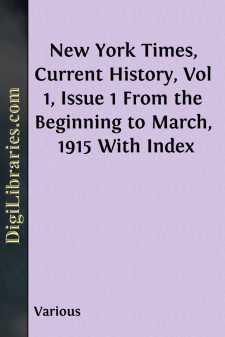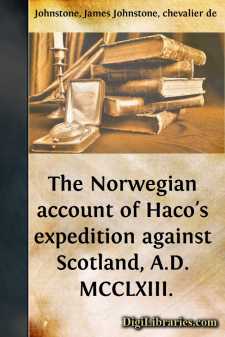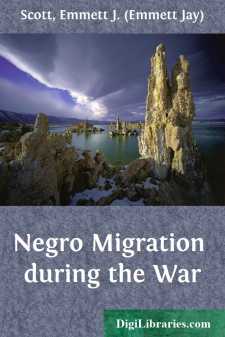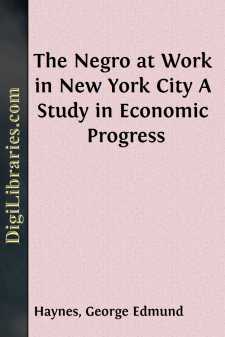History
- Africa 30
- Americas (North Central South West Indies) 50
- Ancient 68
- Asia 58
- Australia & New Zealand 8
- Canada 41
- Caribbean & West Indies 1
- Civilization 20
- Eastern Europe 12
- Europe 310
- Expeditions & Discoveries 60
- General 77
- Historical Geography 1
- Jewish 9
- Latin America 3
- Medieval 8
- Middle East 13
- Military 248
- Revolutionary 8
- Study & Teaching 5
- United States 353
- Western Europe 56
- World 13
History Books
Sort by:
THE NEW PENELOPE. I may as well avow myself in the beginning of my story as that anomalous creature—a woman who loves her own sex, and naturally inclines to the study of their individual peculiarities and histories, in order to get at their collective qualities. If I were to lay before the reader all the good and bad I know about them by actual discovery, and all the mean, and heroic, attributes this...
more...
by:
Various
"Common Sense About the War" By George Bernard Shaw. "Let a European war break out—the war, perhaps, between the Triple Alliance and the Triple Entente, which so many journalists and politicians in England and Germany contemplate with criminal levity. If the combatants prove to be equally balanced, it may, after the first battles, smoulder on for thirty years. What will be the population...
more...
FOREWORD The struggle for the North Pole began nearly one hundred years before the landing of the Pilgrim Fathers at Plymouth Rock, being inaugurated (1527) by that king of many distinctions, Henry VIII of England. In 1588 John Davis rounded Cape Farewell, the southern end of Greenland, and followed the coast for eight hundred miles to Sanderson Hope. He discovered the strait which bears his name, and...
more...
MCCXLIX. Alexander King of Scotland, wished much for possession of the Hebrides. He had often sent to Norway to redeem them with money, and he did so this summer. But when he could not purchase those territories of King Haco, he took other measures in hand, which were not princely. Collecting forces throughout all Scotland, he prepared for a voyage to the Hebrides, and determined to subdue those...
more...
BRUMAIRE. THE OVERTHROW OF THE FRENCH DIRECTORY. The eighteenth century went out with the French Directory, and the nineteenth came in with the Consulate. The coincidence of dates is not exact by a year and a month and twenty-one days. But history does not pay much attention to almanacs. In general our century arose with the French Consulate. The Consulate was the most conspicuous political fact of...
more...
I. THE PERIOD OF LEGEND The blending of fact and fancy which men call legend reached its fullest and richest expression in the golden age of Greece, and thus it is to Greek mythology that one must turn for the best form of any legend which foreshadows history. Yet the prevalence of legends regarding flight, existing in the records of practically every race, shows that this form of transit was a dream...
more...
CHAPTER I Within the brief period of three years following the outbreak of the great war in Europe, more than four hundred thousand negroes suddenly moved north. In extent this movement is without parallel in American history, for it swept on thousands of the blacks from remote regions of the South, depopulated entire communities, drew upon the negro inhabitants of practically every city of the South,...
more...
CHAPTER I. THE UNITY OF MANKIND. The Biblical Argument.—One Race and One Language.— One Blood.—The Curse of Canaan. DURING the last half-century, many writers on ethnology, anthropology, and slavery have strenuously striven to place the Negro outside of the human family; and the disciples of these teachers have endeavored to justify their views by the most dehumanizing treatment of the Negro....
more...
CHAPTER I HOW SLAVERY GREW IN AMERICA An English traveler, riding along the banks of the Potomac in mid-July, 1798, saw ahead of him on the road an old-fashioned chaise, its driver urging forward his slow horse with the whip, until a sharp cut made the beast swerve, and the chaise toppled over the bank, throwing out the driver and the young lady who was with him. The traveler—it was John Bernard, an...
more...
PREFACE This study was begun as one of the several researches of the Bureau of Social Research of the New York School of Philanthropy, largely at the suggestion of Dr. Samuel McCune Lindsay, the director, to whose interest, advice and sympathy its completion is largely due. Sincere thanks are due the Bureau for making the investigation possible. The material was gathered between January, 1909, and...
more...











